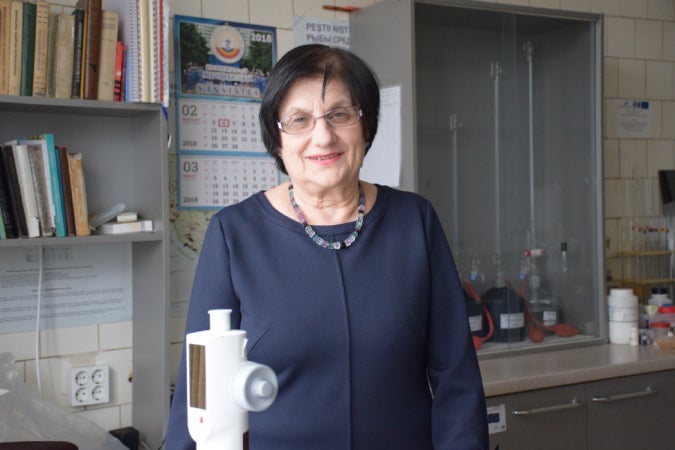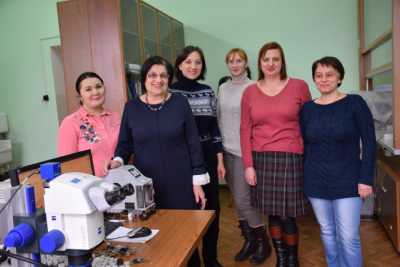Women in science: Elena Zubcov
Date:
On the International Day of Women and Girls in Science we had a talk with Elena Zubcov, member of the Academy of Sciences, Head of the Laboratory of Hydrobiology and Ecotoxicology. Elena Zubcov holds a habilitated doctor degree in biosciences, she is a research professor, has published over 400 scientific works and holds 7 patents.

‘When I got hired at the Academy of Sciences I was the only woman in that laboratory of hydrochemistry; now the majority of our 18-person team members are women.
I was the first researcher in Moldova to study the heavy metals in the food chain of aquatic ecosystems, their positive and negative impact, the laws and processes of migration of these micro elements, including of toxic metals.
The laboratory deals with water expeditions and material collection. As researchers we work to gain an insight into many processes that happen in the aquatic ecosystems under the influence of climate changes and the changes caused by us, people. This is the only laboratory in the country that studies not just the chemical composition of waters, but also the living creatures, from the micro-organisms to fishes; all the organisms that live in the water, muds, and in the nearshore ecosystem. We study not only the macro-components, mineralization, nitrates, etc., but also the heavy metals, different persistent organic substances – pesticides, hydrocarbons, processes of bioaccumulation and biotransformation of various indicators. A researcher who studies the environment must be familiar with various areas of research because it is very difficult to understand the ecosystems’ functional processes.
I like to experiment a lot; I wasn’t born a leader or a head of laboratory. I like to go on trips, I enjoy the research process: taking the materials in my hands and then analysing them in the laboratory. When you discover something that no one else did, you reach the peak that gives you forces for other things.
I always tell the girls that gaining new knowledge is the most precious thing.

Together with my younger colleagues here we survived the most difficult years – the 1990s, when there was no money for salaries and it was very cold in the premises. I told them that times would change, but knowledgeable people would always be in demand, since knowledge is the most valuable asset a person can have. They trusted me. I established a nongovernmental organization – the Ecotox Association, that allowed us to get some assignments from international organisations when this facility was not even heated. This is how we got the first European projects and had our first computers.
Recently, we obtained funding from international organizations and purchased the most advanced equipment amounting to over EUR 1 million to help us conduct this research.
I would advise the girls who want to work in science to study well; they have to like what they learn and also try to do their first research during the high school years. You should start asking yourself since childhood: ‘what do I want to be when I grow up?’ If you are a scientist, and if you want to, you can see the whole world.
In 2017 I became the associate member of the Academy of Sciences. Three women were chosen as associate members of the Academy of Sciences last year, and there are only two female academicians in science so far; thus, it is a total of 5 women out of 78 persons with such titles.’